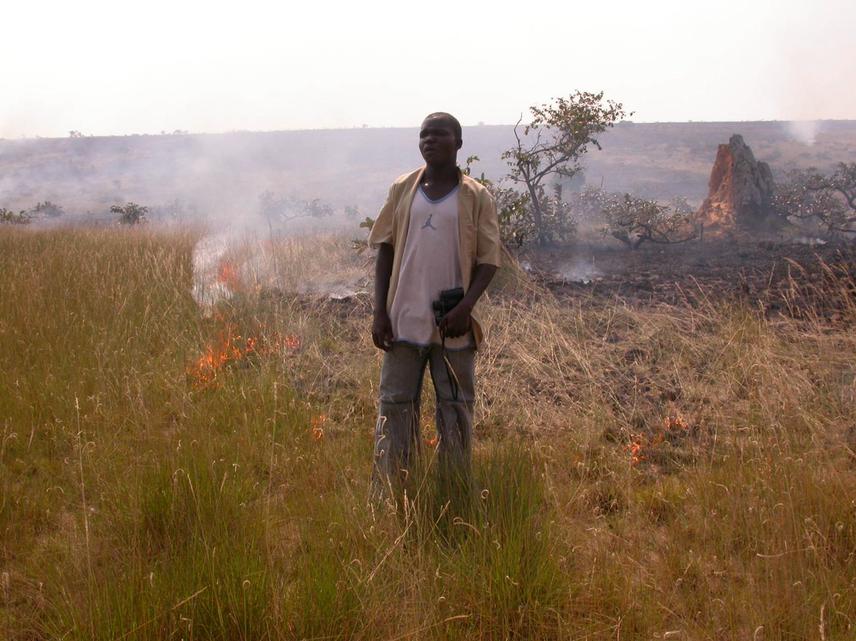Gretchen Walters
This study will document local fire practices associated with savanna resource utilisation and apply it to the management of PBNP, Gabon.

The conservation of biological diversity is a serious challenge to parks in developing countries. In addition to insufficient staff and resources, there is often a lack of knowledge about the ecosystem needed to make management decisions. Local ecological knowledge can play a role in management, but is often not utilized. In the case of local knowledge of fire use, these regimes were initially considered to be environmentally destructive in African, Australian, and American savannas. Research has since proven that fire and biodiversity are linked; fire is often a practical solution to management problems, and often necessary to maintain savanna ecosystems.
In Gabon, Central Africa, only 20% of the country is covered in savanna while the rest is forested. Most management practices are therefore oriented towards tropical timber while savanna management is non-existent. This is a problem for national park management given that 6 of the 13 national parks contain savannas. These savannas contain numerous species not found in forested areas, and without management, will likely disappear from Gabon as forest encroaches on these grassy habitats.
Plateaux Batéké National Park (PBNP) was created in 2002. This park is composed of a forest-savanna mosaic, an ecotone where the coastal forest block transitions into the vast interior savannas of Central Africa. These savannas house unique assemblages of insects, birds, mammals, and plants? Several of which find the limits of their ranges within the ecotone. The park's management objective is to maintain the existing forest-savanna mosaic and its associated biological and cultural diversity. Initial management efforts have primarily focused on anti-poaching patrols. Eliminating hunting from the park also eliminates the fire-based methods used by Batéké hunters. These hunters have historically burned savanna to create grazing areas for wildlife. The effects of removing fire from the park are unknown. Thus, understanding savanna management and cultural fire use becomes very important.
This study will document local fire practices associated with savanna resource utilisation and apply it to the management of PBNP, Gabon. We will work with Batéké inhabitants to document historic and present burning methods and look at fire-effects on plants, birds, and mammals. This information will become the basis for a PBNP fire plan and relevant for management in the other five savanna parks.
The research team comprises local informants from six villages around the park's perimeter and numerous managers and scientists. This group of people represents the Prefecture of the Plateaux, the Gabonese National Parks Council, the Wildlife Conservation Society, the University College of London, the Missouri Botanical Garden, and the Projet Protection des Gorilles.